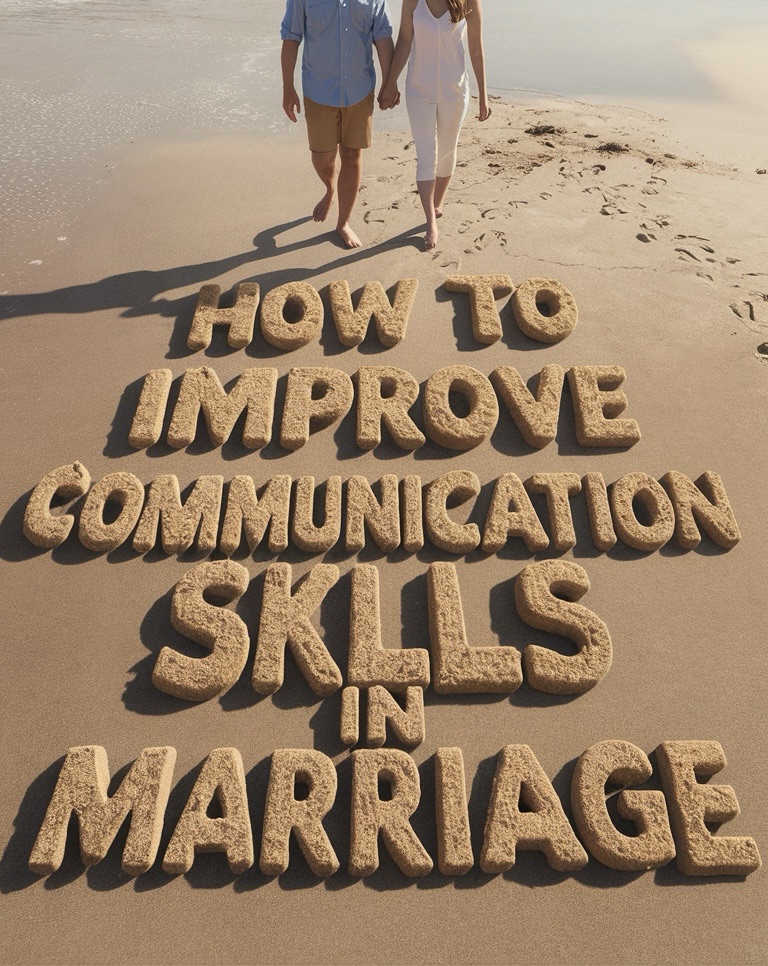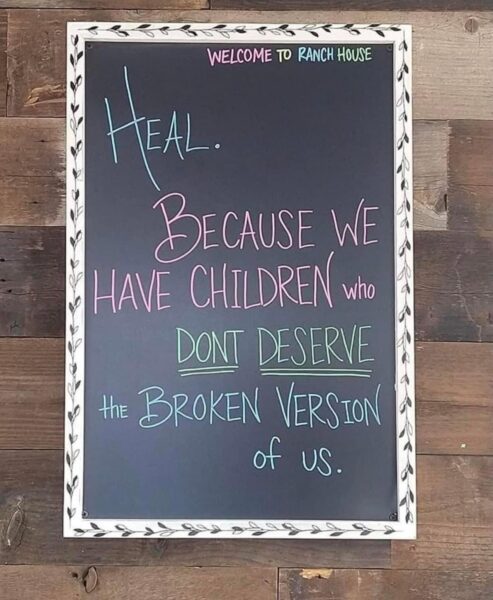Communication is the cornerstone of a healthy and fulfilling marriage. Good communication skills in marriage are essential for maintaining a strong connection, resolving conflicts, and building mutual understanding and respect. When couples communicate effectively, they can navigate challenges more smoothly and strengthen their bond.

In this article, we will explore how to improve communication skills in marriage, focusing on practical strategies and tips that can enhance your relationship. Effective communication is not just about talking; it involves listening, understanding, and responding thoughtfully. By improving these skills, couples can foster a more harmonious and loving relationship.
One important aspect of communication is handling confrontation without becoming aggressive. For men seeking to improve their communication skills, understanding how to manage difficult conversations can be crucial. You can learn more about this topic in the Man’s Guide to Handling Confrontation.

What Are Good Communication Skills in Marriage?
Good communication skills in marriage are fundamental for creating a strong and healthy relationship. These skills go beyond simply talking to one another; they involve listening, empathy, respect, and understanding. Let’s break down some key components of good communication in a marriage.
Active Listening Active listening means fully concentrating on what your spouse is saying without interrupting or planning your response while they are speaking. It involves nodding, making eye contact, and providing feedback that shows you understand their point of view. This can help build trust and respect in the relationship.
Empathy and Understanding Empathy involves putting yourself in your spouse’s shoes and trying to understand their feelings and perspectives. This can help you respond more compassionately and avoid misunderstandings. Reflecting back what your partner has said can demonstrate that you are genuinely trying to understand their emotions and concerns.
Clear and Concise Expression Being able to clearly and concisely express your thoughts and feelings is essential. Use “I” statements to communicate your feelings without blaming your spouse. For example, saying “I feel upset when…” instead of “You always make me upset by…”. This approach reduces defensiveness and fosters a more productive dialogue.
Non-Verbal Communication Non-verbal cues like body language, facial expressions, and tone of voice play a significant role in communication. Being aware of your non-verbal signals and interpreting your spouse’s non-verbal cues can greatly enhance understanding. For instance, maintaining an open posture and avoiding crossing your arms can make you appear more approachable and engaged.
Respectful Communication Always approach conversations with respect, even when discussing difficult topics. Avoid name-calling, sarcasm, and derogatory remarks. Showing respect in your communication helps to maintain a positive atmosphere and prevents escalation into arguments.
By developing these communication skills, couples can improve their relationship and create a stronger, more understanding bond. For more insights on enhancing communication and relationship dynamics, consider exploring the Master Your Stubble: Guide to Shaving & Grooming Techniques for Men, which, while focused on personal grooming, also touches on the importance of clear and confident communication.

Why Is Effective Communication in Marriage Important?
Effective communication in marriage is crucial for maintaining a healthy, loving relationship. It affects every aspect of married life, from emotional intimacy to conflict resolution. Here are some reasons why good communication skills in marriage are so important:
1. Emotional Intimacy Effective communication helps build emotional intimacy between partners. When spouses can openly share their thoughts, feelings, and concerns, it fosters a deeper connection and understanding. This emotional closeness is essential for a strong and supportive marriage.
2. Conflict Resolution Conflicts are inevitable in any relationship, but how they are handled can make a significant difference. Effective communication allows couples to address issues constructively rather than letting them fester. By discussing problems openly and honestly, couples can find solutions and avoid unnecessary resentment. Learning how to handle confrontation without getting aggressive is particularly important for men, as it helps resolve disputes peacefully.
3. Trust and Respect Open and honest communication builds trust and respect between partners. When spouses feel heard and understood, they are more likely to trust each other and feel valued. This trust is the foundation of a healthy relationship and helps prevent misunderstandings and mistrust.
4. Prevention of Misunderstandings Misunderstandings often arise from poor communication. By clearly expressing thoughts and feelings, couples can avoid misinterpretations that lead to conflicts. Ensuring that both partners are on the same page reduces the likelihood of unnecessary disagreements.
5. Enhanced Partnership Marriage is a partnership, and effective communication ensures that both partners are working together towards common goals. It allows for better coordination in decision-making, parenting, and managing household responsibilities. This collaborative approach strengthens the marital bond and promotes harmony.
6. Support and Encouragement Good communication enables spouses to provide each other with support and encouragement. Whether it’s dealing with personal challenges or celebrating successes, knowing that your partner is there to listen and offer support is invaluable.

For further insights on how effective communication can enhance attraction and success, you might find the article on Top Men’s Colognes that Drive Success and Attraction interesting, as it discusses how personal presentation, including communication, impacts relationships.

How to Improve Spoken Communication Skills in a Relationship
Improving spoken communication skills in a relationship is essential for expressing thoughts clearly, understanding each other, and resolving conflicts effectively. Here are some practical tips for enhancing your verbal communication with your spouse:
1. Practice Active Listening Active listening involves fully concentrating on your partner’s words without interrupting. Show that you are engaged by nodding, maintaining eye contact, and providing verbal affirmations like “I understand” or “That makes sense.” This approach helps your spouse feel heard and valued.
2. Use “I” Statements “I” statements help express your feelings without placing blame on your partner. For example, instead of saying “You never listen to me,” try “I feel unheard when we don’t communicate clearly.” This technique reduces defensiveness and promotes constructive dialogue.
3. Be Clear and Concise Avoid beating around the bush or using vague language. Be clear and specific about your needs and concerns. This minimizes misunderstandings and ensures that your message is received as intended. For instance, if you need help with household chores, clearly state what tasks you need assistance with.
4. Mind Your Tone and Body Language Your tone of voice and body language can significantly impact how your message is received. Speak in a calm and respectful tone, and avoid crossing your arms or rolling your eyes, as these non-verbal cues can convey frustration or disinterest.
5. Encourage Open Dialogue Create a safe space for open and honest communication. Encourage your partner to share their thoughts and feelings without fear of judgment or criticism. Regular check-ins can be a great way to maintain this open dialogue, allowing both partners to express themselves freely.
6. Avoid Interruptions Interrupting your partner can lead to frustration and misunderstandings. Allow them to finish speaking before responding. This demonstrates respect and shows that you value their perspective.
7. Practice Empathy Try to understand your partner’s point of view, even if you don’t agree with it. Empathy helps build emotional connection and fosters a deeper understanding. Reflecting back what your partner has said can also validate their feelings and show that you are truly listening.
8. Use Positive Reinforcement Acknowledge and appreciate your partner’s efforts in communication. Positive reinforcement encourages continued openness and helps build a supportive environment for dialogue.
For more tools to enhance your relationship, consider using resources like an intimacy card deck that can help spark meaningful conversations and improve connection.

Common Communication Barriers in Marriage
Understanding and overcoming common communication barriers is essential for improving communication skills in marriage. These barriers can lead to misunderstandings, conflicts, and emotional distance. Here are some typical obstacles and how to address them:
1. Misunderstandings Misunderstandings often occur when couples assume they know what the other person means without seeking clarification. This can lead to incorrect assumptions and unnecessary conflicts.
Solution: Practice active listening and ask clarifying questions. Repeat back what your partner has said to ensure you understand their message accurately.
2. Assumptions Assuming your partner knows what you are thinking or feeling can create communication gaps. This often happens when couples expect their partner to read their mind or understand unspoken cues.
Solution: Communicate your thoughts and feelings explicitly. Don’t expect your partner to guess what you need or want.
3. Emotional Reactions Reacting emotionally, such as getting angry or defensive, can escalate conflicts and hinder productive communication. Emotional reactions often prevent couples from listening to each other and resolving issues calmly.
Solution: Take a moment to calm down before responding. Practice deep breathing or take a short break if needed. Approach the conversation with a calm and open mind.
4. Distractions and Multitasking Trying to communicate while distracted or multitasking can lead to incomplete or misunderstood messages. It shows a lack of attention and can make your partner feel unimportant.
Solution: Set aside dedicated time for conversations, free from distractions. Give your partner your full attention to show that you value their words.

5. Lack of Empathy Failing to empathize with your partner’s feelings can create emotional distance and misunderstandings. Without empathy, it’s challenging to see things from your partner’s perspective.
Solution: Practice empathy by putting yourself in your partner’s shoes. Acknowledge their feelings and show understanding and support.
6. Cultural and Gender Differences Different cultural backgrounds and gender communication styles can also pose challenges. These differences can influence how messages are conveyed and interpreted.
Solution: Educate yourself about your partner’s cultural and communication style. Be patient and open-minded, and discuss these differences to find common ground.
7. Unresolved Past Conflicts Past conflicts that remain unresolved can resurface and affect current communication. These unresolved issues can create tension and hinder open dialogue.
Solution: Address and resolve past conflicts through honest and respectful conversations. Seek the help of a professional counselor if needed to work through lingering issues.
Understanding and addressing these communication barriers can significantly improve how you interact with your spouse. For further insights on debunking myths and improving intimacy in relationships, explore debunking common lies about sex for better relationship intimacy.

How to Improve Communication Skills in a Marriage
Improving communication skills in a marriage involves intentional efforts and consistent practice. Here are some effective strategies to help you enhance your communication with your spouse:
1. Set Aside Dedicated Time for Conversations Carve out specific times for meaningful conversations with your spouse. This helps ensure that both partners are focused and attentive. Make it a routine to have these discussions regularly, whether daily or weekly.
2. Use “I” Statements Using “I” statements allows you to express your feelings and thoughts without blaming your partner. For example, say, “I feel upset when we don’t discuss our plans,” instead of “You never talk to me about our plans.” This approach reduces defensiveness and fosters more productive dialogue.
3. Practice Patience and Avoid Interruptions Allow your partner to speak without interrupting. Practicing patience shows respect and helps prevent misunderstandings. It also gives you time to fully understand their perspective before responding.
4. Develop Active Listening Skills Active listening involves giving your full attention to your partner, acknowledging their message, and responding thoughtfully. This includes maintaining eye contact, nodding, and summarizing what they’ve said to ensure understanding.
5. Address Issues Sooner Rather Than Later Don’t let small issues fester into larger conflicts. Address concerns promptly in a calm and respectful manner. This prevents resentment from building up and keeps communication lines open.
6. Use Positive Reinforcement Encourage and appreciate your partner’s efforts to communicate. Positive reinforcement builds a supportive environment where both partners feel valued and motivated to maintain open communication.
7. Seek to Understand, Not Just to Respond Focus on understanding your partner’s point of view rather than simply waiting for your turn to speak. This empathetic approach can lead to deeper connections and more effective conflict resolution.
8. Establish Regular Check-Ins Schedule regular check-ins to discuss your relationship, address any issues, and celebrate your successes together. These check-ins can help keep both partners aligned and aware of each other’s needs and feelings.
9. Encourage Open and Honest Dialogue Create a safe space for your partner to share their thoughts and feelings honestly. Avoid judgment and be open to hearing their perspective, even if it differs from yours.
10. Develop Mutual Respect and Trust Building mutual respect and trust is foundational for effective communication. Be consistent in your actions and words, and show appreciation for your partner’s contributions to the relationship.
For more tips on improving relationship dynamics, consider reading about 7 things you should never say to your wife or girlfriend, which can help you avoid common pitfalls in communication.

Building Better Communication Habits
Building better communication habits is essential for maintaining a healthy and fulfilling marriage. These habits help create a strong foundation of trust, understanding, and mutual respect. Here are some strategies to develop and reinforce effective communication habits in your marriage:
1. Establish Regular Check-Ins Regular check-ins are a proactive way to maintain open lines of communication. Set aside time weekly or monthly to discuss your relationship, share feelings, and address any concerns. These check-ins can prevent small issues from escalating and keep both partners engaged in the relationship.
2. Encourage Open and Honest Dialogue Create an environment where both partners feel safe to express their thoughts and feelings without fear of judgment. Honesty is crucial for building trust and understanding. Encourage your spouse to share openly, and practice being open and honest yourself.
3. Develop Mutual Respect and Trust Respect and trust are the cornerstones of effective communication. Show respect by listening attentively, valuing your partner’s opinions, and being considerate in your responses. Trust is built through consistent, honest communication and by keeping your commitments.
4. Practice Empathy Empathy involves understanding and sharing the feelings of your partner. Practice putting yourself in your partner’s shoes and acknowledging their emotions. This helps foster a deeper emotional connection and improves communication.
5. Use Positive Language Focus on using positive, affirming language in your interactions. Compliment your partner, express gratitude, and highlight the good aspects of your relationship. Positive language reinforces a supportive and loving environment.
6. Be Mindful of Non-Verbal Cues Non-verbal communication, such as body language, facial expressions, and tone of voice, plays a significant role in how messages are received. Be mindful of your non-verbal cues and interpret your partner’s cues accurately. Ensure your body language matches your words to avoid mixed signals.
7. Avoid Blame and Criticism Blaming and criticizing can create defensiveness and hinder effective communication. Focus on addressing the issue rather than attacking your partner. Use “I” statements to express your feelings and avoid placing blame.
8. Resolve Conflicts Calmly When conflicts arise, approach them calmly and respectfully. Take a break if emotions run high and return to the conversation when you both can discuss the issue rationally. Aim for a resolution that satisfies both partners.
9. Reinforce Healthy Communication Practices Consistently practice and reinforce healthy communication habits. Remind each other of the importance of these practices and hold each other accountable. Celebrate your progress and the positive impact on your relationship.
10. Seek Continuous Improvement Communication skills can always be improved. Stay open to learning and growing together. Consider reading books, attending workshops, or seeking counseling to enhance your communication skills further.
For couples looking to deepen their connection, using tools like an intimacy card deck can provide structured ways to explore each other’s thoughts and feelings, promoting better communication and intimacy.

Techniques for Resolving Conflicts in Marriage
Conflicts are a natural part of any relationship, but how they are resolved can significantly impact the health and longevity of a marriage. Here are some effective techniques for resolving conflicts in marriage:
1. Identify the Root Cause Understanding the root cause of a conflict is essential for finding a lasting resolution. Take the time to discuss and identify the underlying issues rather than just focusing on the surface-level arguments. This approach helps address the real problems and prevents recurring conflicts.
2. Stay Calm and Collected Approach conflicts with a calm and composed demeanor. Reacting with anger or frustration can escalate the situation and make resolution more challenging. Take deep breaths, pause if needed, and return to the conversation when you are both ready to discuss calmly.
3. Use Active Listening Active listening is crucial for resolving conflicts. Listen to your partner without interrupting, acknowledge their feelings, and validate their concerns. This shows respect and helps both partners feel heard and understood.
4. Communicate Clearly and Respectfully Express your thoughts and feelings clearly and respectfully. Avoid using accusatory or blaming language, which can create defensiveness. Instead, use “I” statements to share your perspective and keep the focus on your own feelings and experiences.
5. Practice Empathy Empathy involves understanding and sharing your partner’s feelings. Try to see the situation from their perspective and acknowledge their emotions. This can help de-escalate conflicts and foster a deeper connection.
6. Find Common Ground Look for areas of agreement and build on them. Finding common ground can help bridge differences and create a foundation for resolving conflicts. Focus on shared goals and values to guide the conversation towards a mutually acceptable solution.
7. Compromise and Collaborate Be willing to compromise and collaborate to find a resolution that satisfies both partners. Compromise involves finding a middle ground where both parties can agree. Collaboration requires working together to create a solution that addresses both partners’ needs and concerns.
8. Take Responsibility Take responsibility for your actions and contributions to the conflict. Acknowledge any mistakes or misunderstandings and be willing to apologize. Taking ownership of your role can help defuse tension and pave the way for resolution.
9. Seek Solutions, Not Victory Approach conflicts with the goal of finding a solution rather than “winning” the argument. Focus on resolving the issue constructively rather than trying to prove your point or assert dominance.
10. Know When to Seek Help If conflicts persist or become too challenging to resolve on your own, consider seeking professional help. Couples counseling or therapy can provide valuable tools and strategies for managing conflicts and improving communication.
Learning how to handle conflicts effectively is essential for maintaining a healthy and harmonious marriage. For more insights on managing confrontation without aggression, consider reading How to Handle Confrontation Without Getting Aggressive: A Man’s Guide.

Resources for Further Improvement
Improving communication skills and resolving conflicts in marriage are ongoing processes that benefit from continuous learning and practice. Here are some valuable resources that can help couples enhance their relationship:
1. Books on Communication and Relationships Numerous books offer insights and practical advice on improving communication and building stronger relationships. Some highly recommended titles include:
- “The Seven Principles for Making Marriage Work” by John Gottman
- “Nonviolent Communication: A Language of Life” by Marshall B. Rosenberg
- “The 5 Love Languages: The Secret to Love that Lasts” by Gary Chapman
2. Online Courses and Workshops Participating in online courses and workshops can provide structured learning opportunities and practical exercises for couples. Websites like Udemy, Coursera, and The Gottman Institute offer courses on relationship skills, communication, and conflict resolution.
3. Professional Counseling and Therapy Seeking the help of a professional counselor or therapist can be highly beneficial, especially for persistent or complex issues. Couples therapy provides a safe space to explore and resolve conflicts with the guidance of a trained professional.
4. Support Groups Joining a support group for couples can offer a sense of community and shared experiences. Support groups provide an opportunity to learn from others, share challenges, and gain encouragement.
5. Relationship Apps There are various apps designed to help couples improve communication and strengthen their relationship. Apps like Lasting, Love Nudge, and Gottman Card Decks offer exercises, prompts, and tools for building better communication habits.
6. Educational Websites and Articles Numerous websites and blogs offer valuable advice and resources on relationship skills. For instance, exploring articles on Menguidingmen.com and 2souls2hearts.com can provide practical tips and strategies for improving your marriage.
7. Interactive Tools and Games Using interactive tools and games can make learning about communication and relationships enjoyable. For example, an intimacy card deck can help couples explore each other’s thoughts and feelings in a fun and engaging way.
8. Workshops and Seminars Attending workshops and seminars, whether in-person or virtual, can offer in-depth learning experiences. These events often feature expert speakers and provide opportunities for interactive participation and discussion.
9. Podcasts and Videos Listening to podcasts or watching videos on relationship topics can be convenient and informative. Many relationship experts host podcasts or YouTube channels that cover a wide range of topics, from communication skills to conflict resolution.
10. Continual Practice and Reflection Finally, the most important resource is the commitment to continual practice and reflection. Regularly applying what you learn, reflecting on your progress, and making adjustments as needed will help you maintain and improve your communication skills over time.
By utilizing these resources, couples can continue to grow and strengthen their relationship. For further guidance on improving relationship dynamics, consider reading about 7 Things You Should Never Say to Your Wife or Girlfriend, which provides insights on maintaining respectful and constructive communication.

Improving communication skills in marriage is essential for building a strong, healthy, and fulfilling relationship. Good communication allows couples to understand each other better, resolve conflicts effectively, and deepen their emotional connection. By making intentional efforts to enhance your communication skills, you can foster a more harmonious and loving marriage.
In this article, we explored various strategies to improve communication skills in marriage, including active listening, using “I” statements, practicing empathy, and setting aside dedicated time for meaningful conversations. We also discussed common communication barriers and techniques for resolving conflicts peacefully.
Remember, improving communication in marriage is an ongoing process that requires commitment and practice. By continuously applying these skills and seeking out additional resources, couples can strengthen their bond and navigate the challenges of married life together.
For more insights and practical advice on maintaining a healthy relationship, consider exploring resources like the intimacy card deck to help spark meaningful conversations and improve your connection. Additionally, learning how to handle conflicts without aggression can be crucial, as discussed in How to Handle Confrontation Without Getting Aggressive: A Man’s Guide.
Incorporating these practices into your daily life will not only enhance your communication skills but also create a more supportive and loving environment for you and your spouse. By working together and making communication a priority, you can build a stronger, more resilient marriage that thrives on mutual understanding and respect.
Thank you for taking the time to read this article. May your journey to improving communication skills in your marriage be rewarding and transformative.

As an Amazon Associate we earn from qualifying purchases through some links in our articles.




